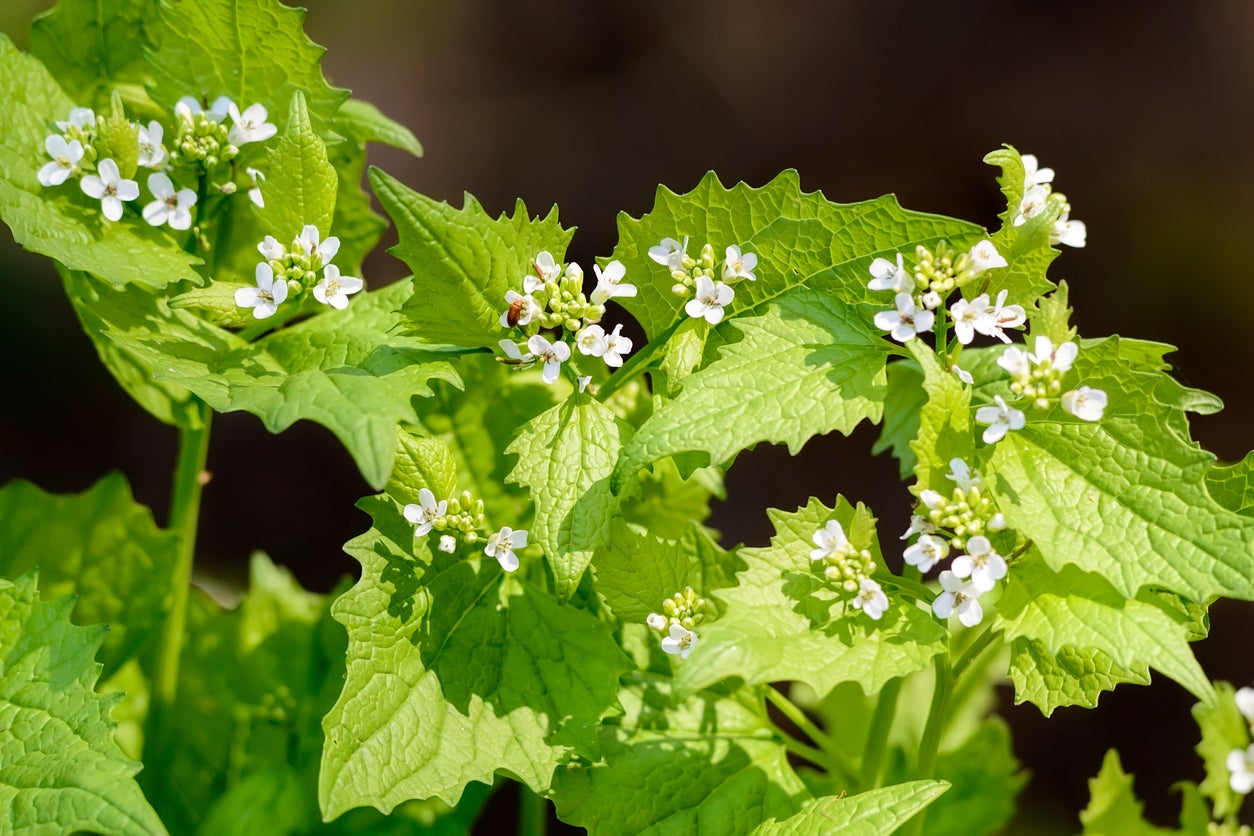How To Use Garlic Mustard Plants – Garlic Mustard Recipes And Harvest Tips


Garlic mustard is not native to North America, but it sure feels at home there. It’s is a wild plant native to Asia, Africa, and parts of Europe. Curious about garlic mustard edibility? It is a biennial plant that can be used in cooking but whose presence is potentially damaging to native flora. If you choose to harvest garlic mustard, take the entire plant to prevent it from spreading.
Can You Eat Garlic Mustard?
Garlic mustard may have tasty potential, but it is a noxious weed. The plant secretes toxins that kill beneficial soil fungi, which most plants need to thrive. Garlic mustard is also extremely hardy and tolerant of a range of soils, making its spread easy. In some areas, it is such a nuisance that entire parties go out into the wild and pull the plants, bagging them for the landfill. None-the-less, there are numerous garlic mustard recipes available.
Garlic mustard is edible and should be harvested when young. The roots taste much like horseradish and the leaves are bitter when mature. The first year plant is a rosette, and its leaves can be harvested year-round. The second year plant can be eaten from early to midspring, before the tender shoots harden and while new leaves are available.
The seeds are excellent in spicy food. Using garlic mustard plants provides an all-season wild food and helps prevent the spread of the herb. One note about garlic mustard edibility, though – the mature leaves and stems are very bitter and contain high amounts of cyanide. Older plant material should be thoroughly cooked before eating.
How to Use Garlic Mustard
Interestingly, animals will avoid eating this plant. Humans are the only animal that will touch it. That is probably due to the ways in which it is used. Young, soft sprouts can be cut up into salads, sautéed in stir fry, or added to soups and stews.
The youngest leaves, when harvested at an almost lime green color, will enliven a mixed green salad. These can also be chopped and used as a seasoning herb.
The root can be pureed and used in sauce or roasted. Just remember it has a potent bite. One of the most popular ways of using garlic mustard plants is in a pesto. Puree blanched leaves or roots and add garlic, lemon, olive oil, pine nuts, and a bit of cheese.
Sign up for the Gardening Know How newsletter today and receive a free copy of our e-book "How to Grow Delicious Tomatoes".
Garlic Mustard Recipes
The Washington Post has a quick garlic mustard sauté. It simply cooks some garlic in olive oil and then adds chopped garlic mustard leaves and water. Cook for five minutes and you have an interesting, wild side dish. A quick web search revealed recipes for cream sauce, ravioli, a mayonnaise, incorporated into game sausage, and even in deviled eggs.
The trick to using garlic mustard is to remember it has a serious zing and can overpower recipes. However, when cooked, the sting goes out of the plant and it can be used as part of a dish without taking over. Cooking also diminishes the amount of cyanide in the plant to safe levels.
Disclaimer: The content of this article is for educational and gardening purposes only. Before using or ingesting ANY herb or plant for medicinal purposes or otherwise, please consult a physician, medical herbalist, or other suitable professional for advice.

Bonnie Grant is a professional landscaper with a Certification in Urban Gardening. She has been gardening and writing for 15 years. A former professional chef, she has a passion for edible landscaping.